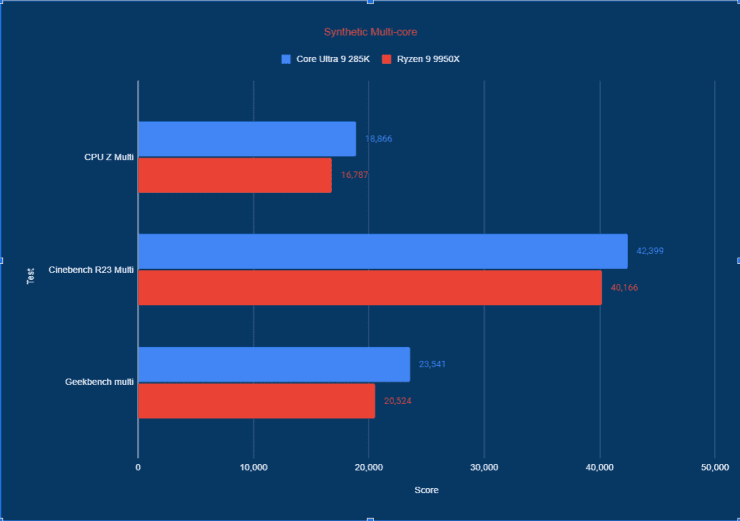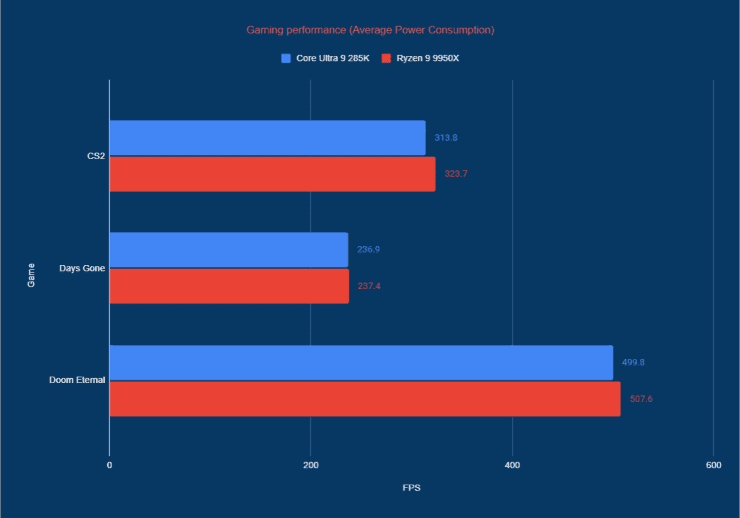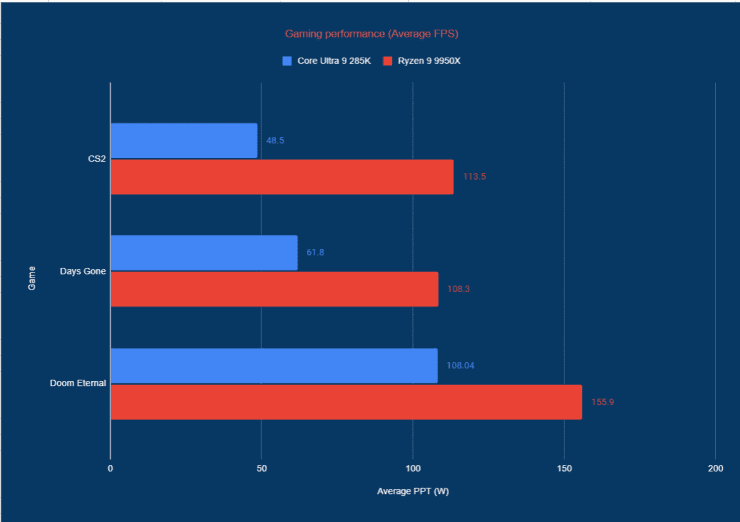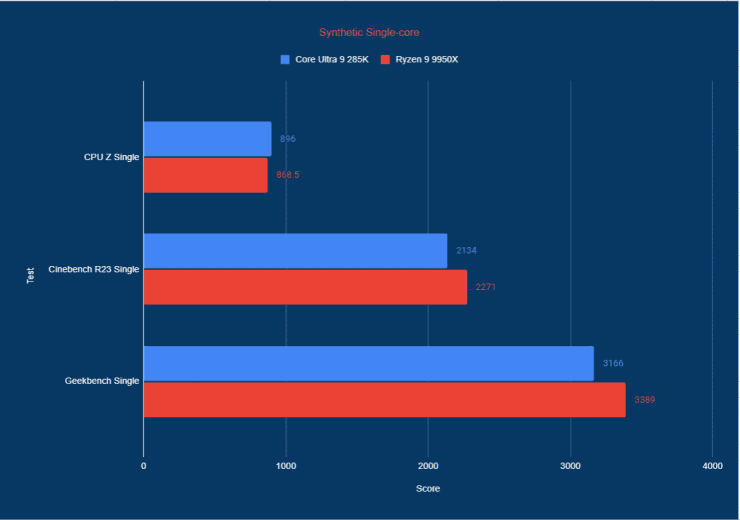Here’s our top picks for the best CPU to pair with the RTX 5080
Updated: Jan 20, 2025 11:19 am

WePC is reader-supported. When you buy through links on our site, we may earn an affiliate commission. Prices subject to change. Learn more
Nvidia has recently announced the first wave of RTX 50 series graphics cards to be released; four SKUs are intended to hit the market with a staggered release. First to see the light of day is the RTX 5080 and 5090, which are set to release on January 30th. The RTX 5070 and 5070 Ti are confirmed to follow suit in February. Thanks to AI and Neural rendering, these GPUs are more powerful than ever and, for once, seem to be very reasonably priced at MSRP.
The RTX 5080 is the second-fastest GPU in the 50 series lineup as of the time of writing, so you’ll need a powerful CPU to keep up with the gaming prowess of the new generation. Truth be told, if you already have a top-of-the-line GPU, like the 4090 or the 7900 XTX, and have an appropriately paired CPU, then you’re okay. But if you don’t, here are the best CPUs to pair with the RTX 5080.
Products at a glance
Why you need a high-end CPU for the RTX 5080
The RTX 50 series has innovated in more than pure rasterization performance; it has also seen major developments in AI and neural rendering. With DLSS 4 and MFG (Multi-Frame Generation) enabled, gamers can expect up to 2X the performance of its predecessor, the RTX 4080. However, this is only the case in the games that support it. Pure rasterization performance is closer to a 20% increase.
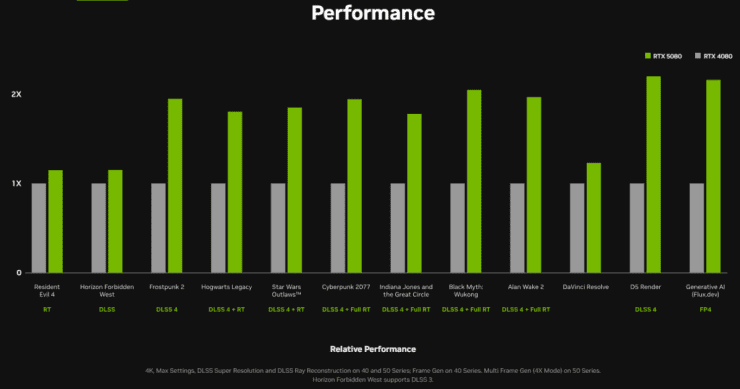
Still, this is a sizeable performance uplift, and you don’t want to be limited by your CPU when gaming. If you’re into your RTS games or any game that requires a lot of physics calculations, you will likely remain CPU-limited no matter what you purchase. However, playing a mix of games might be worth picking up something a little more capable. Any performance from your GPU (or CPU) left on the table is wasted value). It’s sometimes a fine line to walk.
We sometimes worry that GPU technology is accelerating far faster than CPU technology, meaning that one day, even the best processors may be heavily limited by the latest GPUs. This fear could become a reality unless AI is implemented into CPUs in the next cycle, but that’s a discussion for another day.
Best CPU for RTX 5080
With that out of the way, it’s time to get into what we consider the best CPU for the RTX 5080.


Specifications
- Core configuration: 8
- Threads: 16
- Base core speed: 4.7 GHz
- Boost core speed: up to 5.2 GHz
- DDR5 support: Yes @ 5600 MT/s
- TDP / PPT: 120 W / 162 W
What We Think
The 9800X3D is hands down the best gaming CPU we have tested to date. The gains over the previous generation are healthy (up to 21% faster), and features the second generation of 3D V-cache technology.
Reasons to Buy
- Best gaming performance of any CPU (as of the time of writing)
- Excellent value for money at MSRP
- Uses AM5 standard, can upgrade from 7000 series with no extra cost
- Turbo game mode improves gaming performance further in some titles
Reasons to Avoid
- Very low stock, sells out fast
- lots of scalpers driving up the price
- Not the best multi-core performance (you might want a non-X3D CPU for workloads)
AMD’s Ryzen 9 9800X3D has established itself as the best CPU for pairing with the RTX 5080 if you’re building a pure gaming PC. However, if you need something more versatile for productivity or mixed workloads, you might consider a CPU with additional cores or wait for the newly announced Ryzen 9 9950X3D, which promises a balance of work and play.
Our review found the 9800X3D trailing behind Intel’s Core Ultra CPUs in certain multithreaded tasks. But this processor leaves everything else (including some of AMD’s own lineup) in the dust regarding gaming. The only real competition is the previous generation’s Ryzen 7 7800X3D, which is slightly more efficient and consumes less power. However, the 9800X3D outshines it thanks to fewer restrictions and better gaming performance. It’s the ultimate CPU for gaming with the RTX 5080, offering unparalleled performance for enthusiasts.
Previous
Next
The 9800X3D features 8 cores and 16 threads with a maximum boost clock of up to 5.2 GHz, all within a modest 120W TDP. This means you don’t need an overly powerful CPU cooler to maintain reasonable temperatures. AMD has also re-engineered the cache die in this generation, placing it under the CCD for better thermal efficiency and removing insulating silicon supports. This results in improved temperature control, even during extended gaming sessions.
Built for the AM5 platform, the 9800X3D allows seamless upgrades from a Ryzen 7000 series CPU without requiring a complete overhaul. It’s compatible with 600 and 800 series motherboards, offering access to the latest features and connectivity options. If you’re already using a high-quality X670 or similar AM5 board, upgrading your motherboard is unnecessary—this CPU will slot right in and take your RTX 5080 build to the next level.
Specifications
- Cores: 16
- Threads: 32
- Boost speed: 5.7 GHz (Max Boost)
- L1/L2/L3 Cache: 80KB/1MB/64MB
- Default TDP: 170W
What We Think
The AMD Ryzen 9 9950X is Team Red’s current flagship (in a pre-9950X3D world), it is able to provide a useful blend of gaming performance and multithreaded workstation performance thanks to AMD’s revolutionary Zen 5 CPU core. Perfect to pair with the RTX 5090.
Reasons to Buy
- Very good balance of workstation and gaming performance
- AMD’s Zen 5 core means processors are more efficient than ever
- Competes with the 285K with PBO enabled
Reasons to Avoid
- Gets hot when PBO is enabled
- Gets hot when PBO is not enabled
- Outclassed in gaming performance by 9800X3D (but so is every other CPU)
The Ryzen 9 9950X stands as AMD’s flagship for raw power and multi-core performance (at least until the 9950X3D comes out), making it a prime contender for pairing with the RTX 5080. While it may not surpass the X3D lineup in gaming performance, the 9950X holds its ground admirably, especially in demanding workloads.
Built on AMD’s Zen 5 core architecture, this CPU is impressively efficient for its capabilities. Although some software hiccups initially marred its launch, patches and updates have since polished the 9950X into the powerhouse it was meant to be.
As we mentioned in our review, In multi-core workloads, the 9950X excels, even dominating in many scenarios. However, it does face stiff competition from Intel’s Core Ultra 9 285K, which narrowly edges it out in some productivity tasks. While enabling Precision Boost Overdrive (PBO) can bridge the performance gap, we caution that running PBO long-term can push the 9950X to its thermal limits. Fortunately, this CPU shines in gaming, often pulling ahead in performance, making it a fantastic choice for the RTX 5080, where balance between gaming and multitasking is key.
Previous
Next
The 9950X features 16 cores and 32 threads, all capable of boosting up to 5.7 GHz. It’s built for heavy multitasking and intensive workflows, with a TDP of 170W and a PPT of 230W. This efficiency places it roughly 20W ahead of its Intel rival on paper, though in practice, the 9950X can run a bit hotter. Pairing it with a robust cooling solution ensures it delivers consistent performance without throttling.
This CPU is compatible with any AM5 motherboard featuring the LGA 1718 socket. For the best experience with the RTX 5080, we recommend investing in a high-quality motherboard that fully supports its features, such as PCIe 5.0 and DDR5. If you’re looking for a CPU that delivers outstanding gaming performance while dominating productivity tasks, the Ryzen 9 9950X is an exceptional choice to maximize the potential of your RTX 5080 setup.
Specifications
- Core configuration: 24 (8+16)
- Threads: 24
- P-Core Speed: 5.5 GHz (boost) 3.7 GHz (base)
- E-Core Speed: 4.6 GHz (boost) 3.2 GHz (base)
- DDR5 support: DDR5 @ 6400 MT/s
- TDP / PL1 / PL2 / PL2 (extreme): 125W / 250W / 250W / 295W
What We Think
We have our gripes with the Core Ultra series from Intel, but they do get the job done when it comes to multi-core performance. If you want, pound-for-pound, the best CPU for workloads, then this is the best choice. If you can pick one up at the right price, and don’t mind buying yet another Intel motherboard, that is.
Reasons to Buy
- Very strong multi-core performance despite no SMT
- Improvements have been made since launch through microcode updates
- Sometimes can be found on sale thanks to poor initial sales
Reasons to Avoid
- Poor gaming performance compared to the likes of X3D CPUs
- Still runs hot despite not being multithreaded
- MSRP is high considering you have to buy an LGA 1851 motherboard too (AND DDR5 memory if you’re still on DDR4
- Best used for multithreaded workloads
The Core Ultra 9 285K is Intel’s newest Arrow Lake flagship, ushering in the ‘Core Ultra’ naming convention. While its initial launch was somewhat underwhelming due to mediocre gaming performance, subsequent microcode updates have improved gaming stability and overall performance. This CPU is designed to excel in multi-core tasks, making it a strong contender for power users who pair it with an RTX 5080, where balanced performance is key.
In our testing, the 285K slightly outpaced AMD’s Ryzen 9 9950X in multi-threaded workloads, making it a beast for productivity. However, gaming benchmarks showed it falling slightly behind the 9950X, though Intel’s post-launch updates promise better gaming performance moving forward. This shouldn’t be a major concern if your focus leans more towards work than gaming. For RTX 5080 owners who value versatility, the 285K still brings plenty of power to the table.
Previous
Next
The CPU features 24 cores and 24 threads, built on Intel’s big.LITTLE architecture. This includes 8 P-cores (performance cores) with a boost clock of 5.6 GHz and 16 E-cores (efficiency cores) boosting to 4.6 GHz. While this is a drop from the 6 GHz seen in the 14900K, the 285K’s balanced design makes it a capable option for high-end systems. The TDP is rated at 125W, but under load, both PL1 and PL2 limits hit 250W, so a high-quality cooling solution is a must for sustained performance.
This CPU requires a new LGA 1851 motherboard. While any compatible board will work, we recommend investing in a Z890 motherboard to unlock your system’s full potential. For gamers and creators looking to pair their RTX 5080 with a CPU that delivers strong multi-core performance and respectable gaming capabilities, the Core Ultra 9 285K is a forward-looking choice that can easily handle modern workloads.
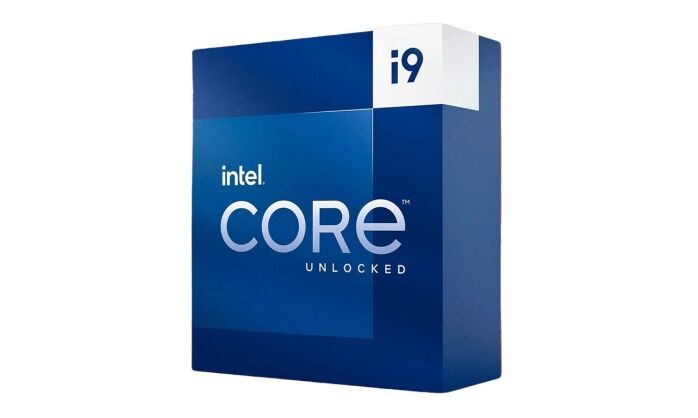

Specifications
- Core configuration:: 24 (8+16)
- Threads: : 32
- P-Core Speed: : 5.8GHz (boost) 3.2GHz (base)
- E-Core Speed: : 4.4GHz (boost) 2.5GHz (base)
- DDR5 support: : Yes @ 5600MHz
- TDP: 125W base 253W PL1 & PL2
What We Think
The 14900K (if you didn’t have one that self-immolated) is a robust future-proof CPU from Intel. It has been many die-hard Intel fans CPU for some time now, as many consider the Core Ultra series not worth the upgrade. You can’t go wrong with the 14900K (so long as you apply the microcode update to stop it, you know, exploding).
Reasons to Buy
- Strong gaming performance
- World’s only CPU to boost to 6 GHz as standard (time of writing)
- Great multi-core performance
- Require more affordable motherboards
Reasons to Avoid
- Similar performance to the 13900K (on release was not worth price hike)
- Can still be expensive
- Not as good as X3D CPUs regarding gaming performance.
The Core i9-14900K is the flagship CPU of the Raptor Lake Refresh lineup. While Intel has since released the Arrow Lake lineup, the 14900K still stands tall as a dependable choice. It’s a solid option for gamers and creators, particularly those pairing it with a high-end GPU like the RTX 5080, which demands a CPU capable of keeping up.
This CPU is essentially an enhanced version of the 13900K, now capable of hitting a staggering 6 GHz boost clock. While the 13900K is becoming increasingly rare, the 14900K offers similar performance with modern availability, making it an ideal pairing for the RTX 5080. Its raw power ensures no bottlenecking, letting the RTX 5080 shine in gaming and productivity workloads.
Our review found that the 14900K delivers strong gaming performance, albeit slightly behind AMD’s X3D lineup in certain scenarios. However, it excels in multi-core tasks, making it a fantastic choice for those needing a CPU that seamlessly switches between gaming and demanding workstation tasks.
The 14900K features 24 cores and 32 threads, employing Intel’s efficient big.LITTLE architecture. This configuration includes 8 P-cores and 16 E-cores, capable of boosting to 6 GHz and 4.4 GHz, respectively. However, this performance comes with a hefty power draw. The CPU’s base TDP is 125W; under load, it can demand up to 253W or even more with an unlimited PL2 Tau limit. You’ll want a robust cooling solution and a quality PSU to keep things running smoothly.
For the best results with the RTX 5080, consider pairing the 14900K with a Z790 motherboard. While older LGA 1700 motherboards are compatible, the Z790 offers improved features and better future-proofing, giving you more upgrade flexibility. If you’re eyeing the RTX 5080 and want a CPU to match its performance, the Core i9-14900K is an excellent pick that balances power, features, and price.
How to pair the RTX 5080 with a good CPU
The thing you want to try and avoid is bottlenecking the RTX 5080 with a slow CPU. The truth is that as long as you have a relatively high-end processor, it’ll probably be able to keep up with the higher resolutions, such as 1440p, 4K, and 8K in some cases. The lower the resolution, the easier it is for the GPU to process the frames (because there are fewer pixels to deal with).
If you play games in 1080p, this GPU is definitely overkill. However, this is the only case where higher-end CPUs may struggle to keep up with the frames the GPU is pushing, especially in physics-based games. If you want to play 1080p, we recommend avoiding the RTX 50 series in general, as they are far too powerful and pretty wasted on 1080p.
Final word
If you need to pair a CPU with an RTX 50 series GPU, you will need a powerful CPU, no matter the card. The 50 series goes far beyond the capabilities of any card we have seen to date, thanks to AI and neural rendering. Avoiding bottlenecks is the name of the game when creating a CPU and GPU pairing, which is why all of our options are top-tier. If you’re a gamer wanting to get the most out of the RTX 5080, then you’ll probably want to choose 9800X3D, as it’s the best CPU right now for gaming performance. On the other hand, if you want pure workload performance, the Core Ultra 9 285K is a good choice.
If you want a good mix of work and play, it could be a good idea to wait until the 9950X3D and accompanying 9900X3D CPUs are released, as they are slated to provide the best middle-ground in terms of gaming and productivity performance. Of course, we don’t know this for sure, as we don’t have any performance benchmarks to go off until the CPUs hit the market. However, don’t let the AI performance of the 50 series beguile you; pure rasterization performance is far less than the promised 2X gains in performance. So, if you play games that are not do not support DLSS 4 and MFG, you might not need to go as ‘all-out’ on a CPU.
